Preparing for Solo Self Drive Trip
Uganda is among the top destination that is open for visiting on self drive within East Africa and among the key information to keep in mind is how to prepare for the solo trip is an important step to make your journey safe, fun, and stress-free. Here are some simple tips to help you get ready:
- Research your destination: Learn about the country, its people, culture, weather, and transport options. Knowing what to expect helps you avoid surprises.
- Plan your itinerary: Decide which places you want to visit, how to get there, and how long you will stay in each place. Keep your plans flexible in case you want to explore more.
- Book accommodation early: Choose safe and well-reviewed places to stay, especially for your first few nights. This helps you settle in comfortably.
- Pack light and wisely: Bring only what you need comfortable clothes, travel-size toiletries, and important items like a power bank and first-aid kit.
- Keep important documents: Always carry your passport, visa (if required), travel insurance, driver’s license (if you plan to drive), vaccination certificates, and copies of bookings or reservations. Keep both digital and paper copies in case of loss.
- Stay connected: Share your travel plans with family or friends and check in regularly. Being well-prepared helps you travel confidently and enjoy your solo adventure without worry.
Safety Tips for Solo Travelers
Driving alone in a foreign country can be exciting, but safety should always come first.
- Know the rules of the road: Learn local traffic laws, speed limits, and driving customs. Driving in Uganda may be different from what you’re used to, so stay alert.
- Choose a reliable vehicle: Rent a well-maintained car, preferably a 4×4 for rough roads, and check fuel, brakes, and tires before starting your trip.
- Plan your route: Know where you are going and avoid remote or unsafe areas at night. Carry a GPS, offline maps, or a local SIM card for navigation.
- Keep valuables secure: Don’t leave bags, electronics, or documents visible in the car. Lock doors when driving or parking.
- Emergency preparedness: Carry a first-aid kit, spare tire, water, and snacks. Know local tour operator or Police emergency numbers (999).
- Inform someone of your plans: Share your route and expected arrival times with friends, family, or your accommodation.
- Drive cautiously: Roads can be rough, animals may cross, and visibility may be low in rural areas. Stay alert at all times.
Top Travel Destinations for Solo Travelers
Uganda is full of destinations that are perfect for solo travelers. Here are some top picks:
- Kampala: The capital city is lively and safe, with markets, cultural sites, and restaurants where solo travelers can meet people and explore the city at their own pace.
- Entebbe: Located by Lake Victoria, Entebbe is peaceful and scenic. You can visit the botanical gardens, wildlife centres, and enjoy lakeside relaxation.
- Jinja: Known as the adventure capital of Uganda. Solo travellers can enjoy white-water rafting, kayaking, bungee jumping, and meet other travellers.
- Bwindi Impenetrable Forest: Famous for mountain gorilla trekking. Guided tours make solo visits safe and memorable.
- Queen Elizabeth National Park: Offers safaris, boat trips on the Kazinga Channel, and a chance to see lions, elephants, and hippos.
- Murchison Falls National Park: Known for its powerful waterfalls and wildlife safaris. Guided tours help solo travellers explore safely.
- Lake Mburo National Park: Famous for zebras, impalas, and horseback safaris. A quiet park perfect for reflection and solo exploration.
- Kibale National Park: Known for chimpanzee trekking and forest walks. Solo travellers can join group tours to explore safely.
- Mgahinga Gorilla National Park: Offers gorilla and golden monkey trekking. Guided tours ensure a safe and rewarding experience for solo travellers.
- Lake Bunyonyi: A peaceful lake surrounded by hills, ideal for swimming, canoeing, or relaxing alone.
- Sipi Falls: A great place for hiking and enjoying beautiful waterfalls near Mt. Elgon.
What to Pack as a Solo Traveler in Uganda
Packing smartly is essential for a safe and comfortable solo trip in Uganda. Here’s a practical list:
- Clothing: Lightweight, breathable clothes for warm days, long-sleeved shirts and trousers for evenings and mosquito protection, a warm jacket for cooler highland areas, and modest clothing for visiting rural or religious sites.
- Footwear: Comfortable walking shoes or hiking boots for treks, sandals for casual wear, and flip-flops for showers or campsites.
- Travel essentials: Passport, visa, travel insurance, driver’s license (if self-driving), copies of important documents, cash, credit/debit cards, and a small backpack for day trips.
- Health and safety: First-aid kit, insect repellent, sunscreen, hand sanitizer, and any personal medications.
- Electronics: Phone, power bank, chargers, camera, and a flashlight or headlamp.
- Camping gear: If self-driving with a rooftop tent, bring sleeping bag, mosquito net, and basic cooking utensils.
- Miscellaneous: Water bottle, snacks, binoculars for wildlife, and a notebook or guidebook.
Accommodation for Solo Travelers in Uganda
 Solo travelers in Uganda have many options depending on their budget and travel style. In cities like Kampala, Entebbe, and Jinja, guesthouses, hostels, and budget hotels are safe, affordable, and ideal for meeting other travellers. Mid-range lodges and campsites near national parks provide comfort while keeping you close to wildlife and nature.
Solo travelers in Uganda have many options depending on their budget and travel style. In cities like Kampala, Entebbe, and Jinja, guesthouses, hostels, and budget hotels are safe, affordable, and ideal for meeting other travellers. Mid-range lodges and campsites near national parks provide comfort while keeping you close to wildlife and nature.
For those seeking more adventure, campsites or self-drive setups with rooftop tents allow you to stay near national parks like Bwindi, Queen Elizabeth, or Murchison Falls, giving flexibility and independence.
When choosing accommodation, solo travelers should look for security, good reviews, and helpful staff. Booking in advance is recommended, especially during peak tourist seasons, to ensure a safe and comfortable stay. A well-chosen place to stay not only provides rest but also a base to explore Uganda safely and enjoyably.
Budget and Money Tips – How Much Does It Cost to Travel Solo in Uganda?
Traveling solo in Uganda can be both affordable and flexible if you plan carefully.
- Self-drive vehicle with camping gear: Renting a Land Cruiser with a rooftop tent and camping gear costs around $140 per day. This allows you to explore national parks, lakes, and rural areas while reducing accommodation costs. You only need campsites that range from 10$ to 25$ per night.
- Fuel: Filling a full tank for a Land Cruiser costs approximately $100–$120, depending on the car tank and how far you plan to drive. For a multi-day trip, you may need to budget for refueling every 2–3 days.

- Budget accommodation: Guesthouses, hostels, and basic lodges typically cost $30–$80 per night if you prefer not to camp.
- Mid-range accommodation: More comfortable lodges near tourist areas usually cost $100–$250 per night.
- Luxury accommodation: comfort, privacy, and exceptional service for travellers who want a premium experience. Usually cost $300 per night and can go much higher depending on the location, season, and included services.
- Food and daily expenses: Meals at local restaurants or cafes cost around $10–$30 per day.
- Park entry fees and activities: Gorilla trekking costs about $800 Per Person, Chimpanzee trekking is $250 Per Person while Park entrance in other national parks are around $35–$45 per day.
Cultural Tips Solo Travelers Should Know in Uganda
- Greet people politely: Always say hello or thank you; Ugandans appreciate friendly greetings.
- Dress modestly: Especially in rural areas and religious sites, to show respect.
- Ask before taking photos: Seek permission before photographing people, homes, or ceremonies.
- Respect local traditions: Participate politely in cultural events when invited.
- Be cautious with personal topics: Avoid discussing politics or religion unless locals bring it up.
- Avoid public displays of affection: These are not widely accepted in many communities.
- Bargain politely: Haggling in markets is normal, but keep it friendly and respectful.
- Observe social norms: Follow cues from locals to avoid unintentionally offending anyone.
Food, Water, and Local Etiquette in Uganda
When traveling solo in Uganda, being careful about food and water is important for staying healthy. Always drink bottled or filtered water and avoid ice from unknown sources. Eat freshly cooked meals, fruits you can peel, and food from clean, reputable restaurants to reduce the risk of stomach issues.
Local etiquette is also important. Ugandans are friendly and polite, so always greet people with a smile. Wash your hands before meals, and use your right hand when giving or receiving items, as the left hand is considered less polite. Avoid public displays of affection, dress modestly in rural areas or religious sites, and ask permission before taking photos of people or their homes.
Communication and Connectivity
English is widely spoken in Uganda, so communication is easy for most travellers. Learning a few local words like “Webale” (thank you in Luganda) can make people smile. Uganda has good mobile coverage in most areas, and you can buy a local SIM card (MTN or Airtel) at the airport or shops. Internet data is cheap, so you can use Google Maps, WhatsApp, and social media easily. Many lodges and cafés also have free Wi-Fi.
Responsible and Sustainable Travel in Uganda
Traveling responsibly in Uganda means respecting the environment, wildlife, and local communities. Avoid littering, use reusable water bottles, and minimize plastic waste to protect natural areas. Stick to marked trails in national parks and follow the instructions of guides to avoid disturbing wildlife, especially during gorilla or chimpanzee trekking. Support local communities by buying crafts, food, or services from local vendors rather than imported goods. Respect cultural traditions and interact politely with villagers, ensuring your presence benefits rather than disrupts their daily life.
Using Eco-friendly accommodations, conserving water and electricity, and traveling with certified tour operators helps reduce your environmental footprint. By practicing responsible and sustainable travel, solo travelers can enjoy Uganda’s beauty while preserving it for future visitors and supporting the well-being of local people and wildlife.



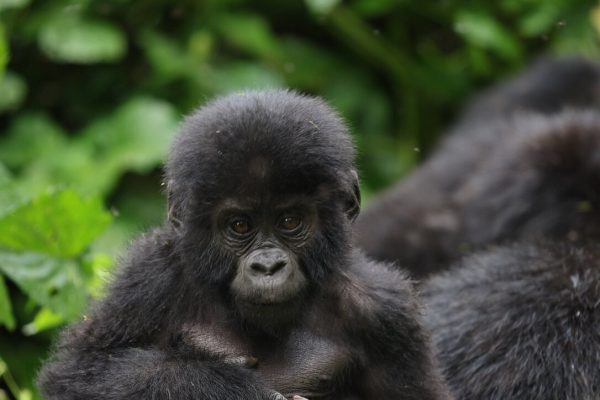

 Solo travelers in Uganda have many options depending on their budget and travel style. In cities like Kampala, Entebbe, and Jinja, guesthouses, hostels, and budget hotels are safe, affordable, and ideal for meeting other travellers. Mid-range lodges and campsites near national parks provide comfort while keeping you close to wildlife and nature.
Solo travelers in Uganda have many options depending on their budget and travel style. In cities like Kampala, Entebbe, and Jinja, guesthouses, hostels, and budget hotels are safe, affordable, and ideal for meeting other travellers. Mid-range lodges and campsites near national parks provide comfort while keeping you close to wildlife and nature.
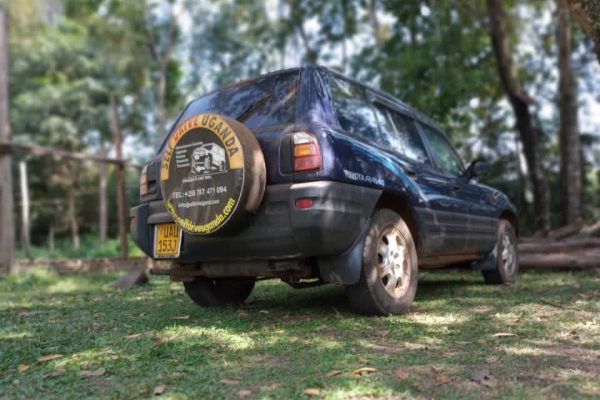
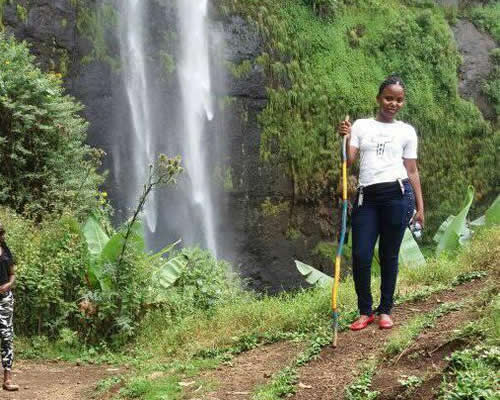
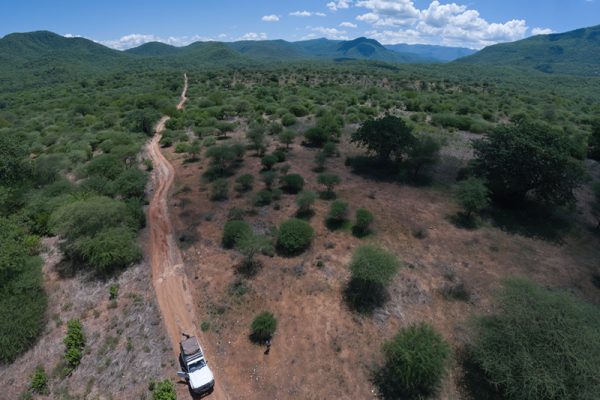
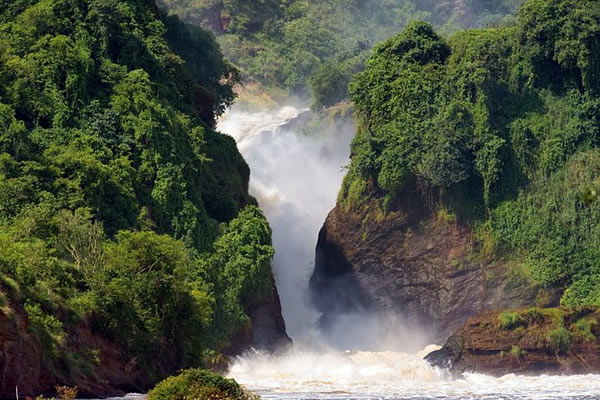
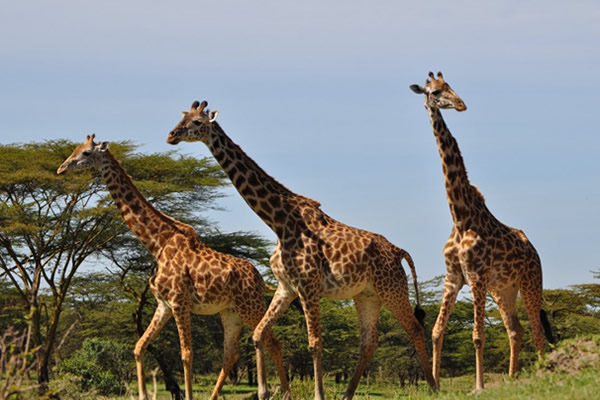
 Northern Uganda & Gorilla Trekking
Northern Uganda & Gorilla Trekking